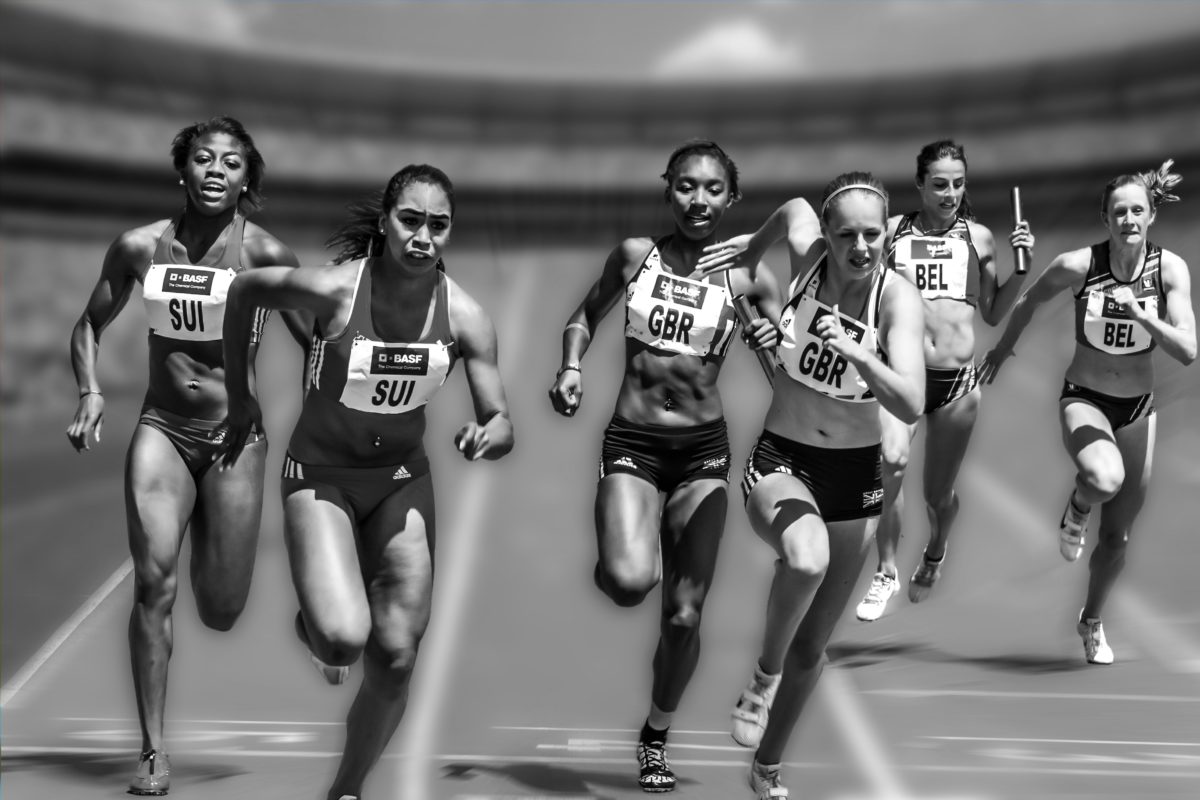One of the greatest strengths of the athletes I work with, whether a junior, collegian, Olympian, or pro, is their intelligence. Their ability to explore, understand, analyze, critique, and find answers and solutions is an essential tool that helps them pursue their goals. At the same time, one of the greatest weaknesses that holds them back from achieving those goals is, well, their intelligence. Yes, smarts are a double-edged sword offering both benefits and costs.
Being a thinker, which pretty much always accompanies intelligence, helps athletes in several ways. It enables them to understand, plan, organize, evaluate, adjust, and make a conscious commitment to their training program. In practice, it helps athletes to hear what their coaches are telling them, make sense of the feedback, and incorporate it into their training efforts. So, thinking can be a good thing in training.
But, being a thinker (and, often, an overthinker), can be a liability on the day of a competition. Here are two simple realities. First, you can’t think your way through a competitive performance. Regardless of your sport, there’s simply no way you can consciously guide yourself through a performance (though some conscious cues along the way can be useful). Your mind would interfere with allowing your body to do what it’s supposed to do.
When you think too much, you fill your mind with clutter, for example, worry, doubt, too much focus on technique or tactics, or comparing yourself to others. It causes you to get distracted and lose focus on what will enable you to perform your best. Thinking too much also creates a disconnect between your mind and your body.
Second, athletic performance occurs in your unconscious mind, not the thinking part of your mind, and in your body. The more you get stuck in conscious thinking, the less you’re able to trust the part of your mind that includes everything you’ve ingrained technically, tactically, and mentally and that will come out automatically if you could just shut your conscious mind off.
And the more that you can turn off the clutter, the more you can connect with your body and allow it to do on the day of a competition what you’ve trained it to do from all those hours in the gym and at practice.
It’s about Feeling, Not Thinking
Which brings me to the fundamental message of this article: You perform your best by feeling, not by thinking. When I talk about feeling, I’m referring to two types of feelings.
First, your physical feelings. To perform your best, you must feel physically ready. The foundation of that physical feeling is being fit and healthy (no illness or injuries). That comes from being committed to your conditioning program, eating healthily, and getting enough sleep.
On the day of a competition, that physical feeling involves being warmed up, having your muscles primed and firing, and being at your ideal intensity—whether relaxed, a bit fired up, or fires blazing—as you enter the field of play.
The second feeling I’m referring to are your emotions. I believe that emotions are the real fuel that propels you to outstanding athletic performance. It’s so important that you generate emotions that power you rather than hold you back. Emotions that can act as an anchor can include fear, anxiety, frustration, disappointment, sadness, and despair. All of these negative emotions hurt you mentally (e.g., causing doubt, worry, and distractions) and physically (e.g., muscle tension, racing heart, too much or not enough adrenaline, choppy breathing), and prevent you from performing your best.
You want to identify the emotions that make you perform your best. Most often, it’s positive emotions, such happiness, contentment, joy, excitement, pride, and inspiration, that produce great athletic performances. At the same time, some negative emotions can also be effective fuel for your engine. Anger, for example, can be serious rocket fuel for performing your best, though I don’t recommend it because it just doesn’t feel good. So, you want to figure out what emotions make you perform your best and do everything you can to generate those emotions on the day of a competition.
Feeling Blockers
Redirecting your energy away from your thinking and onto your physical and emotional feelings is a real challenge, to be sure. If you’re someone who gets stuck in your head often, you’ve gotten really good at thinking, especially when the pressure is on. Not only has thinking too much become a habit for you, but there are likely “feeling blockers” that keep you from disconnecting from your mind and connecting with your body and emotions. The most common ones I find include:
- Perfectionism.
- Fear of failure.
- Need for control.
- Expectations/pressure.
- Need to please.
If you’re experiencing any of these conditions, you probably use your thinking to protect you from the emotions that they generate, usually fear, frustration, sadness, and just plain hurt. To tap into your physical and emotional feelings, you need to find a way to let go of these “ailments,” so you can release yourself from the grip of thinking and open yourself up to the feelings that will enable you to perform your best. This is not an easy task, but it is possible. However, a deeper discussion of these feeling blockers is beyond the scope of this article.
How to Tap into Your Feelings
There are several things you can do to bring those feelings out of you on the day of a competition. First, build trust in your ability to perform your best. This confidence is grounded in a belief in your coaches and the program they have created for you, your equipment, your training, and your competitive preparations. This trust is essential because it enables you to turn off your mind, generates positive emotions, and allows your body to do what you’ve trained it to do.
Second, always go to why you compete in your sport, for the love, passion, and enjoyment you get from giving your best effort and achieving your goals. There is no better fuel for great athletic performances than those powerful reasons you do your sport.
Third, as part of your routine on the day of a competition, do things that create those physical feelings. Have a good early-morning physical warm-up to get your body going right away on the day of a competition. Have a good sport warm-up. Before the competition, have physical exercises that activate and prime your body for your upcoming performance. Breathing is also a great tool to help you get to that physical feeling that tells you that your body is ready to rock and roll.
Finally, also part of your competitive routine, do things that create the emotional feelings. Listen to music that inspires you, calms you, or fires you up. Do your sport warm-up with your friends. Have fun before the competition by chatting it up with your teammates and fellow competitors. Do anything that produces the emotional feelings that bring out outstanding athletic performances in you.
In sum, your goal is to create those physical and emotional feelings every time you compete and use those feelings to express yourself fully in competition.
Image credit: IndivisableGame







